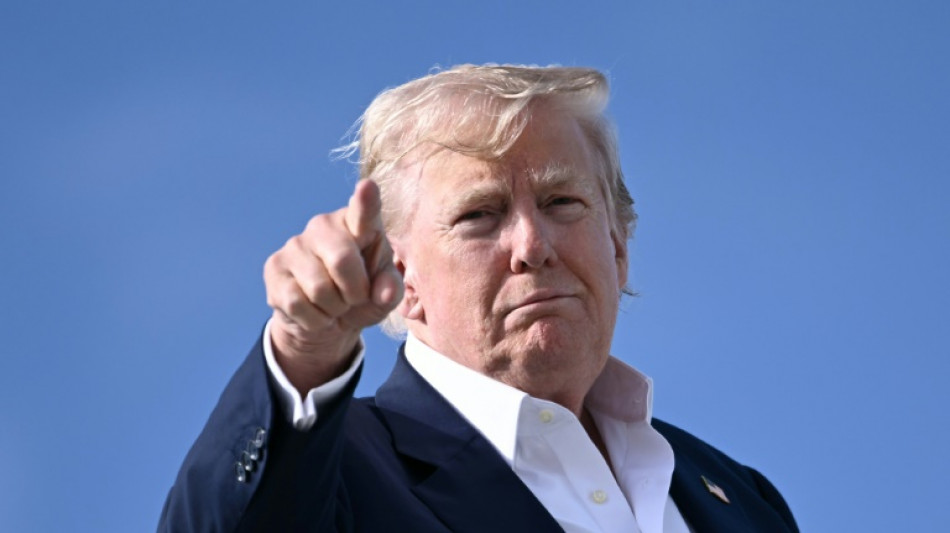
-
 Serie A chief blasts Rabiot's criticism of Milan match in Australia
Serie A chief blasts Rabiot's criticism of Milan match in Australia
-
From refugee to Nobel: Yaghi hails science's 'equalising force'

-
 De Minaur, Auger-Aliassime through to Shanghai quarter-finals
De Minaur, Auger-Aliassime through to Shanghai quarter-finals
-
Canal Istanbul stirs fear and uncertainty in nearby villages
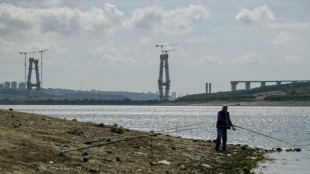
-
 Root backs England to end Ashes drought in Australia
Root backs England to end Ashes drought in Australia
-
British PM Starmer hails India opportunities after trade deal
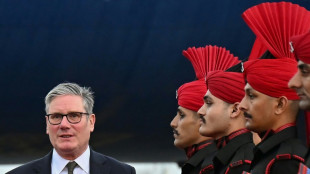
-
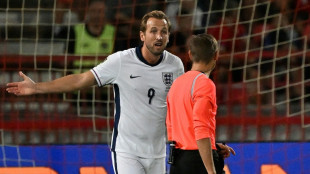 England captain Kane could miss Wales friendly
England captain Kane could miss Wales friendly
-
Tennis increases support for players under corruption, doping investigation

-
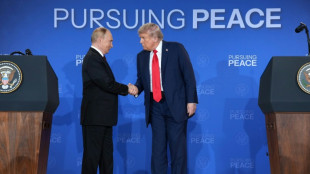 Russia says momentum from Putin-Trump meeting 'gone'
Russia says momentum from Putin-Trump meeting 'gone'
-
EU wants key sectors to use made-in-Europe AI
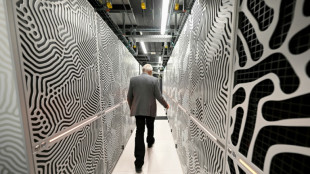
-
 De Minaur, Rinderknech through to Shanghai quarter-finals
De Minaur, Rinderknech through to Shanghai quarter-finals
-
Gisele Pelicot says 'never' gave consent to accused rapist

-
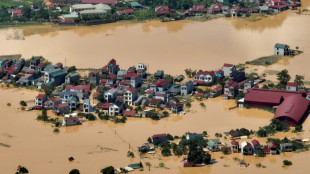 Thousands stranded as record floods submerge Vietnam streets
Thousands stranded as record floods submerge Vietnam streets
-
Sabalenka battles to keep Wuhan record alive, Pegula survives marathon
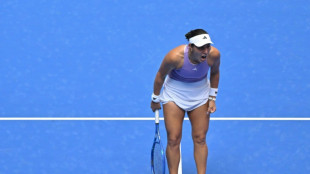
-
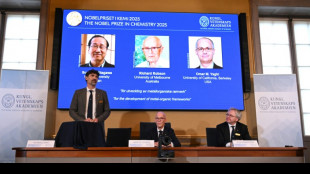 Trio wins chemistry Nobel for new form of molecular architecture
Trio wins chemistry Nobel for new form of molecular architecture
-
Tarnished image and cheating claims in Malaysia football scandal

-
 Family affair as Rinderknech joins Vacherot in Shanghai quarters
Family affair as Rinderknech joins Vacherot in Shanghai quarters
-
New documentary shows life in Gaza for AFP journalists

-
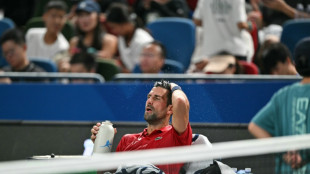 Tennis stars suffer, wilt and quit in 'brutal' China heat
Tennis stars suffer, wilt and quit in 'brutal' China heat
-
Wildlife flee as floods swamp Indian parks

-
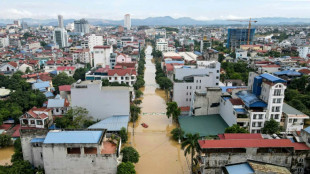 Record flooding hits Vietnam city, eight killed in north
Record flooding hits Vietnam city, eight killed in north
-
Battling cancer made Vendee Globe win 'more complicated', says skipper Dalin

-
 England, Portugal, Norway closing in on 2026 World Cup
England, Portugal, Norway closing in on 2026 World Cup
-
Child protection vs privacy: decision time for EU

-
 Bear injures two in Japan supermarket, man killed in separate attack
Bear injures two in Japan supermarket, man killed in separate attack
-
In Simandou mountains, Guinea prepares to cash in on iron ore

-
 Morikawa says not to blame for 'rude' Ryder Cup fans
Morikawa says not to blame for 'rude' Ryder Cup fans
-
Far right harvests votes as climate rules roil rural Spain

-
 'Return to elegance': highlights from Paris Fashion Week
'Return to elegance': highlights from Paris Fashion Week
-
Britain's storied Conservative party faces uncertain future
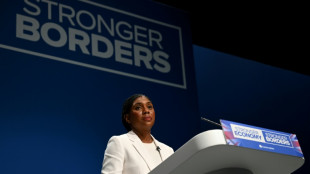
-
 New Zealand's seas warming faster than global average: report
New Zealand's seas warming faster than global average: report
-
Snakebite surge as Bangladesh hit by record rains

-
 Yankees deny Blue Jays playoff sweep as Mariners beat Tigers
Yankees deny Blue Jays playoff sweep as Mariners beat Tigers
-
Australia police foil 'kill team' gang hit near daycare centre

-
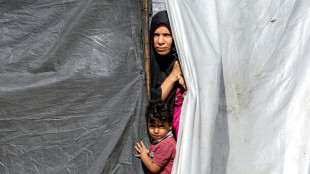 US, Qatar, Turkey to join third day of Gaza peace talks in Egypt
US, Qatar, Turkey to join third day of Gaza peace talks in Egypt
-
Gold tops $4,000 for first time as traders pile into safe haven

-
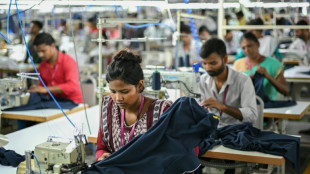 Indian garment exporters reel under US tariffs
Indian garment exporters reel under US tariffs
-
NBA back in China after six-year absence sparked by democracy tweet

-
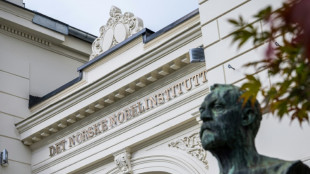 Energy storage and new materials eyed for chemistry Nobel
Energy storage and new materials eyed for chemistry Nobel
-
Trump unlikely to win Nobel Peace Prize, but who will?

-
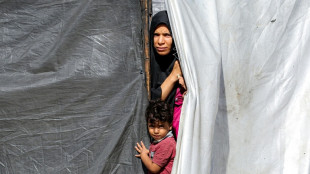 Qatar, Turkey to join third day of Gaza peace talks in Egypt
Qatar, Turkey to join third day of Gaza peace talks in Egypt
-
Study finds women have higher genetic risk of depression

-
 Dolly Parton's sister calls for fan prayers over health issues
Dolly Parton's sister calls for fan prayers over health issues
-
On Trump's orders, 200 troops from Texas arrive in Illinois
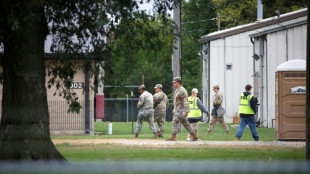
-
 Two bodies found, two missing after Madrid building collapse
Two bodies found, two missing after Madrid building collapse
-
Panthers raise banner as NHL three-peat bid opens with win

-
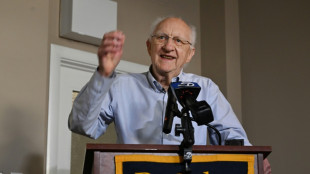 Nobel physics laureate says Trump cuts will 'cripple' US research
Nobel physics laureate says Trump cuts will 'cripple' US research
-
UFC star McGregor suspended 18 months over missed drug tests
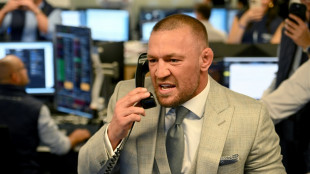
-
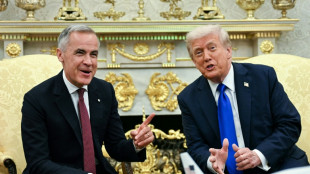 Trump talks up Canada trade deal chances with 'world-class' Carney
Trump talks up Canada trade deal chances with 'world-class' Carney
-
Ecuador president unharmed after apparent gun attack on motorcade


Trump gets his way on tariffs, but global trade system intact for now
President Donald Trump has succeeded in strong-arming nations to accept higher tariffs on US exports, yet for now experts see little threat to the postwar trend of lower duties in the pursuit of greater wealth all around.
Since World War II, most politicians and economists view free trade as a pillar of globalisation, enshrined in the 1947 signing of the GATT accord.
It was the precursor to the World Trade Organization, which now has 166 members and covers 98 percent of global commerce.
"What we've learned in the postwar is that lower tariffs are better for prosperity of your own country," said Richard Baldwin, a professor at the IMD Business School in Switzerland.
"And it's also good if other countries lower their tariffs, so we have a vibrant international economy," Baldwin, who was a member of US president George Bush's Council of Economic Advisors, told AFP.
Trump however has embarked on a punishing trade war, claiming that deficits with other nations show they are "ripping off" the United States.
He has recently landed accords with Japan, the Philippines, Indonesia and, most importantly, the European Union.
For dozens of other nations, US "reciprocal" tariffs are to jump from 10 percent to various steeper levels come August 1, including powerhouse economies such as South Korea, India and Taiwan.
"To me, the most beautiful word in the dictionary is 'tariff'," Trump repeatedly said during the 2024 election campaign that returned him to office.
- 'Pyrrhic victory' -
Despite the headline figures, many economists expect the fallout for the global trade system overall to be limited.
US importers may well decide to procure more from American producers as the tariffs are applied, or pass along the higher costs to consumers.
"That won't have a systemic impact" outside the United States, Pascal Lamy, a former WTO chief, told AFP, calling the tariffs a "Pyrrhic victory" for Trump.
He noted that Trump is targeting only the US deficits for goods and not services, "the part of global trade that is increasing the fastest".
"You need to change your outlook when it comes to international trade," Lamy said, adding that "Donald Trump has a medieval view" of the issue.
And instead of making a country more prosperous, the accepted economic wisdom is that by making goods more expensive, tariffs weigh on economic growth for everyone involved.
"Putting up your own tariffs is not a way to make yourself richer -- that's something that people have given up on many years ago," Baldwin said.
"Trump has not screwed up the entire world trading system yet because the rest of the world hasn't changed their opinion as to whether trade is good or bad," he said.
"And generally speaking, it's good."
- Bucking the trend -
Global trade has risen sharply in recent decades, totalling nearly $24 trillion in 2023, according to WTO figures.
US imports represent just 13 percent of overall imports -- meaning the vast majority of international commerce will not be directly affected by Trump's levies.
"It's significant, but it's only a small part of imports worldwide, and the rest of the world still wants the system of engagement and interdependence to work," said Elvire Fabry, a specialist in geopolitical economics at the Jacques Delors Institute.
Several countries have moved in recent years to forge new trade deals, a trend Trump's tariffs blitz could accelerate.
In March, Japan, South Korea and China pledged to speed up negotiations on an accord, while Brazil's President Luiz Inacio Lula da Silva has called for a deal between the Mercosur Latin America bloc and Japan.
The European Union has also signed a free-trade deal with Mercosur, though its ratification has been held up, in particular by France over concerns about unfair agriculture competition.
The EU has also relaunched efforts to secure a deal with Malaysia and countries in Central Asia.
In April, the WTO said world merchandise trade would fall 0.2 percent this year before a "modest" recovery to growth of 2.5 percent in 2026.
But those forecasts took into account only the tariffs Trump had announced up to then -- not the more severe levels he has threatened to put in place starting August 1 for countries that have not signed deals with Washington.
E.Burkhard--VB
